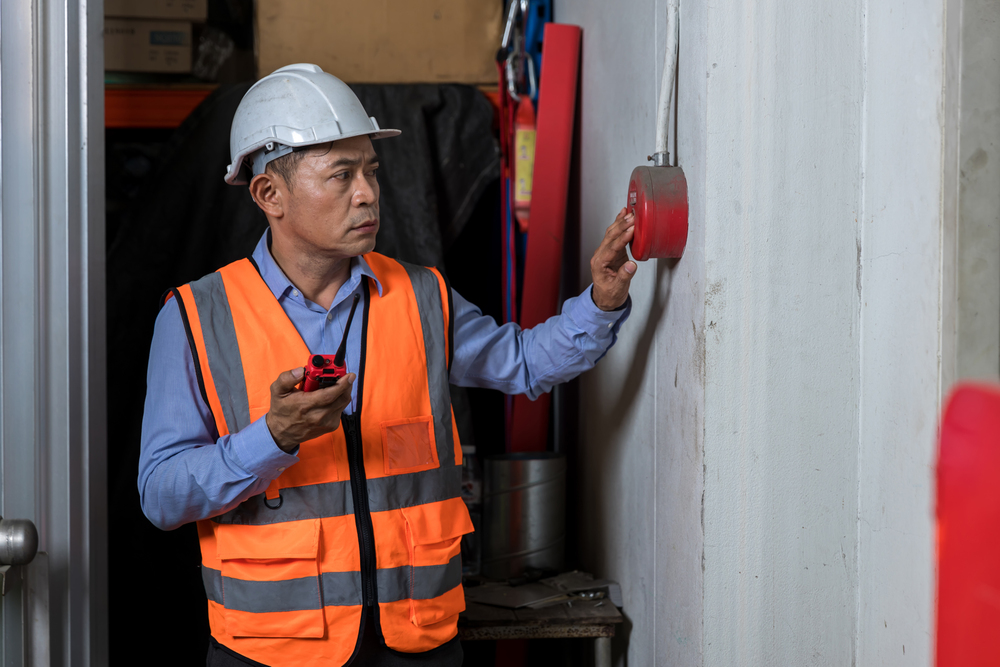 18
Dec
18
Dec
What To Expect During A Fire Alarm Inspection
- 0 Comment(s)
- December 18, 2024
Fire alarm inspections may not seem like the most exciting aspect of building maintenance. However, when the potential risks are considered, their importance becomes immediately clear. A fire alarm inspection is akin to a health checkup for your building’s safety. Below, we will explore the key elements of a fire alarm inspection and explain why it is a critical process.
The Basics of a Fire Alarm Inspection
A fire alarm inspection is designed to confirm that your system is fully operational and prepared to function as intended in an emergency. It is a routine evaluation conducted by a professional technician who thoroughly examines every aspect of the fire alarm system. This inspection goes beyond verifying that alarms emit a loud sound; it makes sure that all components are ready to safeguard both people and property.
Visual Check of the Equipment
The initial step in the inspection involves a thorough visual assessment of the system. The technician will review all visible parts of the fire alarm, such as detectors, pull stations, and control panels. During this check, they will look for obvious issues, such as damage, dirt, or obstructions blocking a smoke detector. Identifying minor issues during this phase prevents more significant problems from developing later.
Testing the System Components
Following the visual inspection, each component will undergo functional testing to confirm it operates correctly. For example, smoke detectors may be exposed to artificial smoke to test their responsiveness, and pull stations will be activated to guarantee they trigger the alarm. Additionally, control panels will be tested to verify proper communication. This process is akin to confirming that each member of an orchestra is playing their part in harmony.
Checking Batteries and Power Supply
The power supply is a critical element of a fire alarm system. During the inspection, the technician will assess the fire alarm backup batteries to confirm they are in good condition and will function if the main power supply fails. They will also check the overall power supply to make sure all connections are secure. A malfunctioning power source can prevent a fire alarm from operating. Thus, this step is key to confirming that the system is fully functional.
Alarm and Signal Testing
Once individual components have been inspected, the entire system is tested together. The technician will activate the alarm to verify that it sends the appropriate signals to emergency services or the monitoring station. This makes sure that, in the event of a real emergency, the appropriate response will be initiated immediately.
Documentation and Reporting
Upon completing the tests, the technician will provide a detailed report of their findings, including which components were tested, how they performed, and any necessary repairs or adjustments. These records are vital not only for compliance purposes but also as a reference in case issues arise in the future. Having a comprehensive report is instrumental in tracking system performance and addressing any recurring concerns.
Why Regular Fire Alarm Inspections Matter
Fire alarm inspections are not merely a regulatory requirement—they are a vital part of maintaining safety. A malfunctioning fire alarm system could be the difference between a minor incident and a catastrophic disaster. Routine inspections help identify small issues before they escalate and make sure that the system is ready to operate effectively in an emergency. Keeping your fire alarm system in peak condition is an investment in the safety and protection of everyone within the building.
How Long Does an Inspection Take?
The duration of a fire alarm inspection depends on the size and complexity of the system. A smaller office may only require an hour or two, whereas larger buildings with more intricate systems may take several hours. Regardless of the time involved, it is a necessary investment in the protection of lives and property.
Getting Ready for an Inspection
If an upcoming fire alarm inspection is scheduled, there are several steps you can take to prepare. Make sure that all areas housing fire safety equipment are easily accessible and free from obstructions. Clear any items blocking detectors or pull stations. Additionally, notifying staff members in advance of the inspection will help prevent any surprise alarms or disruptions during the process.
Keep Your Fire Safety Systems Ready with Yadkin Fire & Safety
Fire alarm inspections are like a safety rehearsal for your building. They help everything work and everyone stay protected. The next time you hear that annoying beep during a test, just remember: it’s a sign that everything is in good hands.
At Yadkin Fire & Safety, we offer thorough fire alarm inspections, fire extinguisher service, and more—all to keep your safety systems in top shape. With over 25 years of experience, our skilled technicians know how to keep your systems ready for action. Call us at (336) 699-4370 today to schedule your inspection and make sure your building is protected.

